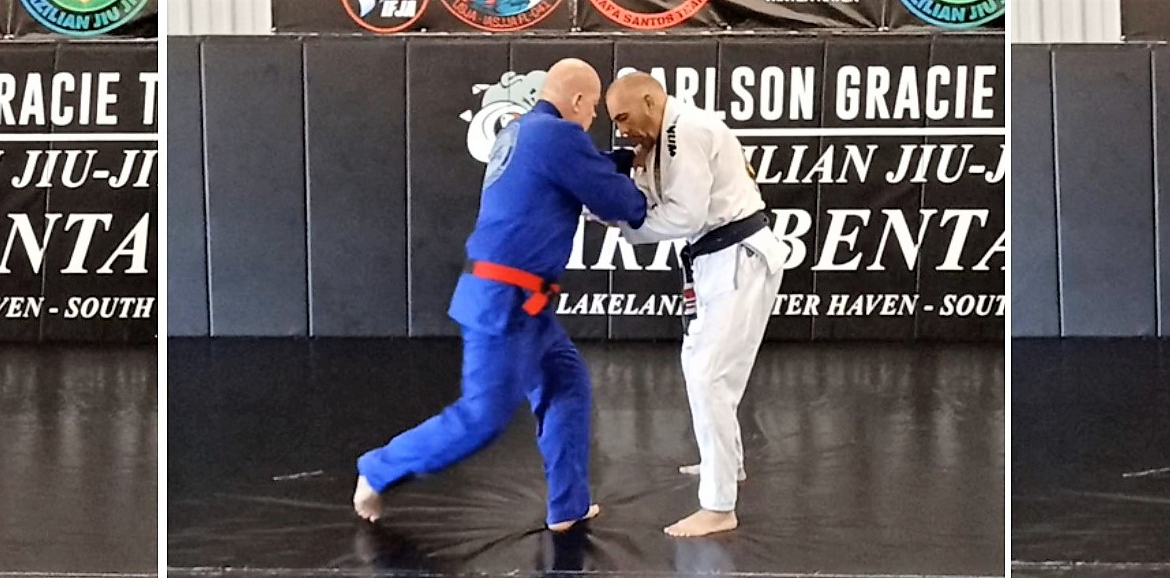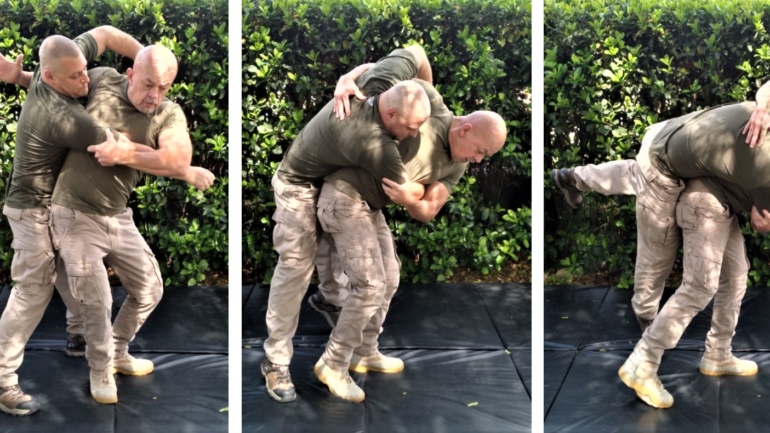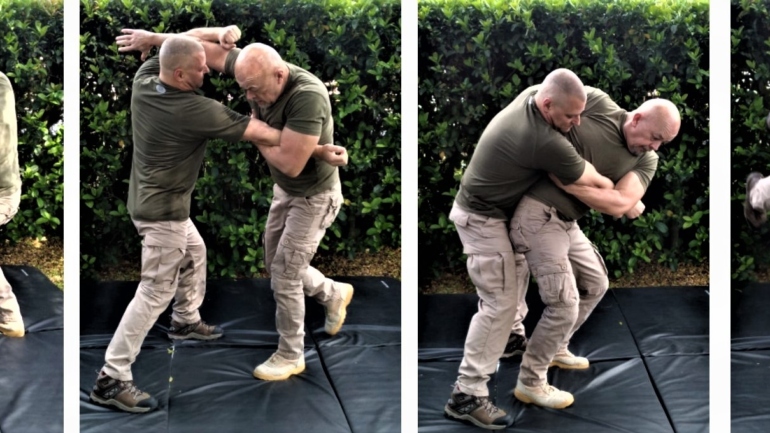Article by Barron Shepherd
Pictured Barron Shepherd and Eddie Sebastia
There is a world of difference between doing judo and actually being able to fight with judo whether it be sport or self defense. Grip fighting represents the very highest levels of competition however, at the lower levels of competition judo and in judo clubs around the world the approach of no grip fighting style still very much persists. A common mistake made when seeking grips is to be so focused on getting your grip that you allow the opponent to get the same grips. These ‘mirror gripping tactics’ (sleeve and lapel grip) are what every judoka learns throws from but in actuality it is one of the worst places to attempt to fight from!
To be able to fight effectively with judo be it competition or self defense, Jigoro Kano maintained that judoka should stand upright, in the style of a “western boxer! To remain relaxed and loose in this posture so that Judoka could move more fluidly in attack and defense. This coincides with what every boxer and athlete knows today, that a stiff muscle is a slow muscle and a relaxed muscle offers faster action and reaction.
Grip or hand fighting in judo is a fairly recent development. There is great value in getting and preventing grips. Grip fighting, used aggressively, creates multiple opportunities to set up your throws and takedowns. Modern Olympic judo competitors look almost like boxers, circling each other while jabbing and probing their opponent’s defenses, punching their hands in for a perfect grip. The perfect grip being the one that allows one to immediately initiate a successful throw or takedown.
Double Parry counter grip to Spinning Ippon Seoi Nage

1.) Blue is standing in a right foot forward. Both of his arms are bent and both hands are held at chest level. The left hand is held slightly in front of his right hand. White is standing left foot forward lead with his left hand held slightly in front.
2.) White attempts to get a lapel or collar grip with his left (lead) hand. Blue turns his upper body slightly to his left as he parries white’s attacking hand to the inside with his left hand.
3.) White immediately follows up with his right hand and tries to establish a right hand grip. Blue turns his upper body slightly more to his left as he parries white’s right hand to the outside with his right hand.

4.) Blue pushes off his left foot and turns his upper body back clockwise to the right creating torque and punches in his left hand in and gets a arm pit or lapel grip on White’s right side.
5.) Blue pulls white forward with his left hand keeping his elbow high. Simultaneously, Blue checks white’s left hand with his right hand as he slides/shifts his right foot back pushing off of it and steps forward with his left foot toward white’s left foot.
6.) As soon as Blue’s left foot touches the mat he pivots counter clockwise on the ball of the left foot. Blue’s right hand pushes White’s right hand into white’s body.

7.) Pivoting 180 degrees on his left foot, Blue brings his right knee up toward his chest his as he continues a high pull with his left hand. Blue’s right arm moves under the aggressor’s right armpit.
8.) At the completion of the pivot, Blue drops his right foot back deep between White’s t just to the inside of white’s right foot. The toes of both feet should be pointing in the direction of the throw. Blue pinches white’s right arm at his arm pit between Blue’s right forearm and bicep. Blue rotates the palm of the right hand toward your head (this creates a tighter clamp on the opponent’s arm).
9.) Blue steps back with left foot to the inside of white’s left foot and pulls downward with his left hand. Blue then begins to straighten his legs quickly by driving upward off his heels, popping his hips upward into the opponent. Blue continues to pull and twist his torso by turning his right elbow toward his left knee and the opponent to the ground to finish the throw.
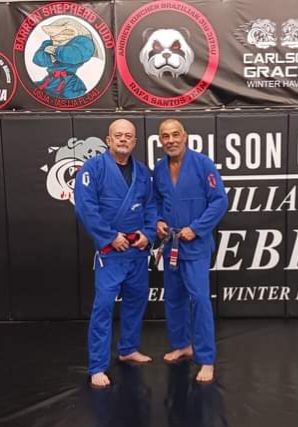
“I have been working one on one with Barron, both of us trading knowledge of the different aspects of our particular styles, BJJ and Judo. When it comes to judo, I appreciate Barron’s style of teaching, not only with the specific drills that he utilizes to supplement and reinforce his judo techniques, but his overall approach of how to properly execute the techniques. One of the things that I especially like about Barron’s style of Judo is his approach to grip fighting and his one-handed style gripping attack. I have implemented this into my game. It has not only helped me with my stand up, but also with my ground game.”
– Eddie Sebastia 2nd stripe Black belt, IBJJF Competitor, 62-2 In competition. Purple Belt World Champion, Brown Belt World Champion, 2x Black Belt Pan American Champion.
